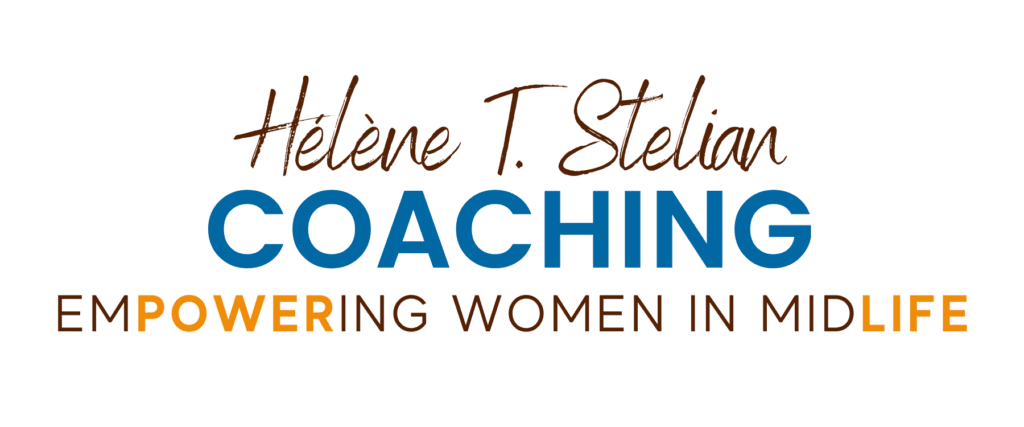During a Zoom meeting with the leaders of an all-volunteer women’s nonprofit, I witnessed one woman (we’ll call her Karen) lash out against another woman (our leader no less, let’s name her Susan), throwing out accusations related to something that happened between the two of them and claiming she could no longer stay silent and had to bring this to the group’s attention in order to live in her “authentic” self. To make things worse, Karen chose to unleash her tirade against Susan after Susan had gotten emotional in announcing the loss of a cherished board member who was moving on.
Karen is not someone I know very well but she’s struck me in the past as a warm-hearted and caring person. She even asked for a moment of silence for Ukraine at the start of our meeting. So as you can imagine, her outburst came as quite a shock to all of us.
Karen claimed that Susan had called her a bully in a private conversation. While Karen was yelling at her, Susan stayed quiet, only saying once, in her defense, that she never called Karen a bully but said she “felt bullied,” at which Karen rolled her eyes. And Karen is a relationship coach, yikes!
When Susan asked if anyone else had anything to share, I finally spoke up and acknowledged the hurt that I saw underneath Karen’s anger, validated the pain I felt for Susan, and pleaded for kindness in these trying times. I was surprised that no other woman spoke up although one did send me a personal chat to thank me for speaking up.
After the meeting, I first felt good that I’d said something, but as time went on I began to question myself and my response. When I let myself sink into the feeling, and name it, I realized it was shame. In an effort to diffuse the situation, I had not intervened and instead had given false equivalency to the attacker and the victim. And the irony is that in claiming not to be a bully, all the while lobbing putdowns at Susan, Karen clearly showed herself to be just that, a bully. (Did I mention that Karen is a relationship coach? 🙀)
So here’s what I did next…
First, I reached out to Susan to ask her how she was doing and to apologize for not cutting Karen off and for not insisting personal attacks would not be tolerated and that Karen had to stop or leave the meeting. Susan appreciated this and shared that she was hurt by Karen’s behavior and struggling to make sense of it.
Second, I sent the group a message on Slack to request another meeting where we could process what happened and everyone would have a chance to share their feelings. I offered to recruit a respected former board member to facilitate the conversation.
Karen immediately responded with a definitive no. She could not “deal with another conversation” and did not want “more drama.” Moreover, she announced she’d be resigning from our board.
I asked her to reconsider her refusal to attend, pointing out that there had been no conversation, only a one-way airing of her grievances: “We would like the opportunity to speak our own truths and, just as we witnessed yours, you owe us the respect to witness ours.”
Karen continued to refuse to meet with the group, saying she just wanted to “move on.” She also said things like:”Just relax and be grateful for all the folks on the committee and their contributions” and “try not to think about what happened because there are many causes to resolve in the world so just move on.”
While she did say she was sorry “that I made people uncomfortable,” Karen insisted she had to speak up and that “I did not do anything that is that terrible” but that she had only caused herself pain. This struck me as a lame non-apology.
I responded: “What is going on in the world does not diminish the very real hurt and pain suffered by those close to us. And to tell me to simply ‘not think about it’ and ‘move on’ is not helpful. My vote is to have a meeting to discuss what happened, so we can all express our feelings and thoughts and move forward in a positive way as a team. If you choose not to show up and speak your voice, that is your choice.”
Karen then shut me down by saying she would no longer engage on the topic.
I am not sure where this will go as I can feel the group’s initial desire to process this together waning. I am trying to hold some compassion toward Karen who is clearly going through something I have no knowledge about, that is causing her to act out, lobbing a grenade and fleeing the damage. This is about her, not about Susan or me or anyone else in this meeting.
All I can do at this point is focus on understanding my own behavior and learn to do better next time. Here is how I’d summarize what I learned from the experience: My instinct to calm everybody down, a well-honed response that speaks to my discomfort with anger, does not serve me anymore. While I may succeed in defusing the situation, I neglect my own feelings and dishonor my own values of courage and justice. And as I’m finding out, it’s much harder to come back later and attempt to right the wrong. I am working on getting in touch with my feelings in the moment so next time I am able to share them with calm confidence and feel proud of my response.
YOUR TURN: Have you betrayed your values in the service of keeping the peace? Have you been a bystander and regretted it later? Or been the victim of a verbal attack and wished others had come to your aid? What’s your advice to those of us seeking to live more courageously when faced with injustice? Please comment below!






I cannot express how much I identify with this situation; it is one in which I find myself often as I’m surrounded by strong athletes with strong opinions.
I always stay silent and keep the peace and Always regret it later and try to find a way to resolve it in my head or with one other person. I never really do feel good about it and always have to just stay in silence or pray about it to get it to go away in my mind the unresolved.
I want to act more like you did in your comments after the fact and not betray my values and how I really feel, and be more of a good example and leader.
Thank you so much for reading and sharing your experience Belle. It is so hard to change ingrained responses. The first step is awareness right? Without recognizing the issue, we can’t do anything about it. You, like me, are taking that first step. Kudos on seeing the issue and being motivated to change. It will take time and practice but I know we can do better, both for ourselves and for others. Thanks again for sharing!
dammit Hélène! Now I’m totally convicted to speak up on something that happened just yesterday. A form of mean girls happened in a very small group I am in. And I remain silent. And it’s bothering me. I’m gonna go think on it more intentionally and figure out what my next courageous intentional action will be. Thank you for sharing your experience!
Haha Melissa sorry not sorry. So glad this resonated and congrats on thinking through your next steps. Thanks for commenting!
Thank you again for a wonderful and authentic piece. I was particularly struck by your comment about treating the aggressor and the “victim” as if they were deserving of the same reaction. I do often speak up when I see inappropriate behavior, but I almost always act as a peacekeeper rather than as a participant with feelings and reactions of my own. Trying to calm the situation has merit, but disadvantages, too. Lately I’ve tried to remind myself to start my reaction with an “I statement,” e.g. “I’m really upset by your outburst. I need you to stop for a minute and let the group vote (or decide) how to handle this” That way I’m more likely to start with something authentic and identify my own feelings, for both myself and the group.
What a great way to think about it Terri, thank you! Wish I’d had you whispering in my ear during the meeting. Thank you for sharing.
This was a time when I DON’T regret speaking up.
I was living with my parents
while saving to buy a home of my own. One morning while cooking breakfast in the kitchen, I was witness to my Narcissist dad verbally tearing into my Mom out of nowhere for some minor, mundane reason (for not taping something “correctly”), which was just an excuse for him to be a bully for no reason. I stood at the stove with my back to him, anger boiling inside me as he continued his senseless tirade of insults and teardowns against my innocent Mother, when I just couldn’t hold my tongue any longer.
I whipped around and yelled at him in her defense, saying, “She’s not an idiot, you are!! You’d have nothing without her!! She does everything for you!! Stop verbally abusing her!!”
I stepped back, knowing that I was crossing a boundary that we had previously agreed upon, but I was fine with that because I had spoken my peace, and defended my Mom when she wouldn’t defend herself.
I “apologized” and stayed out of it after that. Though he liked to threaten to kick me out on the street when I challenged him, I couldn’t hold myself back that morning. It felt good to speak the truth against a bully.
I’m glad I spoke up for my Mom that day.
Wow, Marie, what a brave act. I can’t imagine how hard it must have been for you to witness that abuse time and again, from one parent to the other no less. Thank you for sharing your inspirational story.
Thank you Helene💜